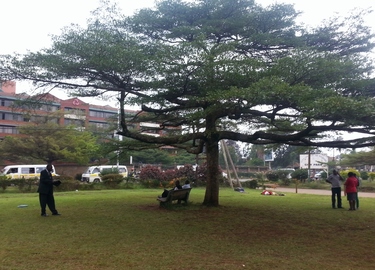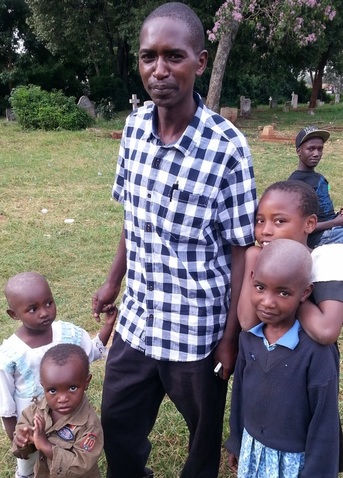 City park speaker’s corner last year, now a car park
City park speaker’s corner last year, now a car park He clearly defines the environmental situation as a “disaster” and a “catastrophe,” using the word “urgent” 15 times in the encyclical. Some would dispute how “urgent” the situation is, but when he cites studies predicting acute water shortages within “a few decades,” we in California can resonate.
But Pope Francis is a different kind of climate change activist. He sees the problem as essentially spiritual rather than environmental: “The external deserts in the world are growing, because the internal deserts have become so vast.” We are trashing the environment because we are trashing Him who made the environment, and ourselves who are made in His image. And this scandal is most evident in the poor. Our abuse of the earth, air and water is unconscionable because it keeps 40% of our human family in dehumanizing poverty. We should exercise responsible stewardship of the environment not because we worship the planet but because wasting and over-stressing air and water directly harms the poorest among us. Good Christians respect plants and animals, but they respect their fellow human beings above all. We in the wealthy nations hardly feel the effects of environmental stress caused by a profit-driven economy. But thick pollution chokes the air here in Nairobi as buses pour black smoke into the streets (kind of hard to ride a bike beside them!). I asked a Kenyan why his government does not regulate bus and truck emissions. He replied: “In the United States, you can afford clean air. We can’t.” Last week I made a new friend, Steve, who repairs shoes under an umbrella on a muddy street. He has five children and can find no other work. I had him repair my running shoes. He cannot afford a car, let alone a catalytic converter.
 Rafael, gardener at city park cemetery in Nairobi, with his three children, Imaculee, Angela and Thomas (with neighbor girl)
Rafael, gardener at city park cemetery in Nairobi, with his three children, Imaculee, Angela and Thomas (with neighbor girl) I rode off to find the old cemetery I had discovered last year, hidden away in the middle of the park. I found the caretaker, Rafael, and his wife and three small children. “Karibu” he said in Swahili. “Welcome.” The City Council pays his salary, and he lives a simple but joyful life in the green sward of the cemetery, cutting back the grasses with his machete and keeping the tombs clean. We talked, the kids all told me their names and ages, and we prayed briefly for his family and the souls of the faithful departed (the men all doffed their caps as we prayed, and I was ashamed to realize I had not doffed mine—I snatched it off quickly!). What a beautiful family, I thought. Here is the core and foundation of Kenyan society, hope of stability for the whole political-economic-ecological matrix. People think the future of Kenya is its developing market economy, which is taking over the green areas, but it is right here, these five people, the God-given gift of the family.


 RSS Feed
RSS Feed